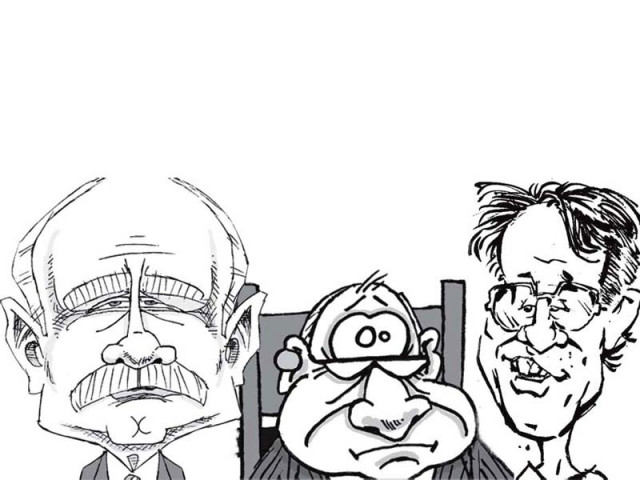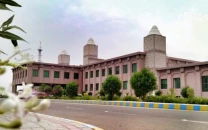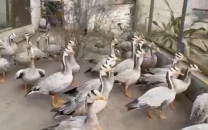Land of confusion: Fare prices that go up, up and away
While prices of all petroleum products have fallen by around 10%, price of transport has changed by exactly zero.

Even though reports suggest Pindi and Islamabad’s transport authorities have ordered rate cuts, enforcement is going to be very unlikely.
This is not a problem restricted to the Islamabad-Rawalpindi area though, as recent reports show that from Swat to Sindh, transporters have flatly refused to lower fares, claiming they have not adjusted them in over a year. That should have generated some sympathy, if not for the fact that it is an outright lie.
Transporters have temporarily hiked fares on multiple occasions since then, just not officially. Whenever the price of fuel goes up, they ask for higher fares. If one can’t pay, one can bugger off, because fixed rates mean nothing to them. When someone argues about the fare with the van conductors, nothing happens. When someone complains to the city government or the Regional Transport Association, nothing happens. When someone complains to the Competition Commission…well nobody has tried yet.
And therein lies the solution. The Competition Commission is fully empowered to deal with cartels, especially when doing so is in the public interest, yet nothing has been done to take transporters associations to task. A former competition chief said that body and even city governments could easily place sanctions on transporters for defying the fixed rate lists, but his successors seem to lack the spine to follow through on the issue.
But that is not the only problem. He also pointed out that most vans, in the twin cities at least, are owned by serving and retired bureaucrats, a disproportionate number of whom are mid-tier policemen such as inspectors and station house officers. It is an accepted fact that bureaucrats are above the law, and the police are even farther up, meaning as far as law enforcement goes, the owners of the vans are untouchable.
To illustrate, my car was once rear-ended by a van driver at a traffic signal. A uniformed cop on duty rushed over and began harassing me until a well-mannered traffic policeman came to my rescue. With just one look at the scene, he let his duty-defying colleague know I was the aggrieved party and not the perpetrator, and told him to treat me that way. However, when we got to the police station to register an FIR against the driver, the registrar, who looked a little like Jabba the Hut from Star Wars, refused to do so.
Of course, there are ways to force a corrupt cop into action, and a name drop was enough to get the driver booked, the van impounded, and the cost of repairs to my car covered. The van owner, surprise surprise, turned out to be an ex-cop who also tried to threaten me until his former colleague, now sweating so much he soaked his shirt and size 46 pants, let him know that I could deliver on my threat. Unfortunately, not everyone can legitimately threaten these bums with the possibility of a corruption hearing, nor should they even need to.
Institutionalised corruption in the police and city administrations mean that van drivers, who would be easy prey for an honest force looking for a legitimate, easy bust that is in the public interest, are never worried about how they drive or what they charge.
Access to affordable public transportation, if looked at broadly, can be considered a human right because of its necessity for commuting workers, especially the vast majority that can’t afford a car or a motorcycle. If there were a genuine public alternative---owned and operated by the city government---they cartel would automatically be broken.
Unfortunately, there is no such thing as public transport in this city. A half-century after being founded, the city admin hasn’t been able to provide a bus service. The one claimed to be in the pipeline has been there for some 20 years, and is still in the planning phase. Considering the planning should only have taken a few months, we are only 70 years away from a public transport system. My unborn grandchildren can’t wait.
The writer is a sub editor on the Islamabad Desk. vaqas.asghar@tribune.com.pk
Published in The Express Tribune, July 8th, 2012.



















COMMENTS
Comments are moderated and generally will be posted if they are on-topic and not abusive.
For more information, please see our Comments FAQ